 Rick Davies (81) – Singer/songwriter, keyboardist/co-founder with Supertramp was born in Swindon, England, on July 22, 1944. Rick went to Sanford Street School and, according to his mother: “Music was the only thing he was any good at at school.”
Rick Davies (81) – Singer/songwriter, keyboardist/co-founder with Supertramp was born in Swindon, England, on July 22, 1944. Rick went to Sanford Street School and, according to his mother: “Music was the only thing he was any good at at school.”
Davies’s first musical stirrings were at the age of eight, when his parents gave him a secondhand radiogram which included a few records left by the previous owner. Among them were Drummin’ Man by drumming legend Gene Krupa, and, in Davies’s own words, “it hit like a thunderbolt”. “I must have played it 2,000 times,” he said. “That was it.” A friend of the family made Rick a makeshift drum kit out of a biscuit tin, and at the age of 12 he joined the British Railways Staff Association Brass and Silver Jubilee Band as a snare drummer.
Eventually, I got some drums and I took lessons. I was serious about it… I figured if I could do that – I mean a real drummer, read music and play with big bands, rock bands, classical, Latin, and know what I was going to do – I would be in demand and my life was set… Eventually, I started fiddling with the keyboards, and that seemed to go over better than my drumming, for some reason. So you’ve gotta go with what people react to.” He never had lessons for keyboards, but, according to Betty Davies, “taught himself most of what he knows about music.”
By 1959, Davies’s attention had been captured by rock ‘n’ roll, and he joined a band called Vince and the Vigilantes. In 1962, while studying in the art department at Swindon College, he formed his own band, called Rick’s Blues, and was now playing a Hohner electric piano instead of drums. The band included Gilbert O’Sullivan on drums for a time; he later was the best man at Davies’s wedding. In a March 1972 interview, O’Sullivan said “Rick had originally taught me how to play the drums and piano – in fact, he taught me everything about music.” When his father became ill, Davies disbanded Rick’s Blues, left college, and took a job as a welder at Square D, a firm making industrial control products and systems, which had a factory on the Cheney Manor Trading Estate in Swindon. Any hopes of an artistic career were temporarily put on ice.
In 1966, Davies became the organist for the Lonely Ones (best known for being one of Noel Redding’s first bands, though Redding had left by the time Davies joined), who later changed their name to the Joint and recorded the soundtracks for a number of German films. He later confessed that he lied about his abilities to get into the group, admitting he could not actually play the organ at the time. While the band was in Munich, Davies met Dutch millionaire Stanley August Miesegaes, who offered to fund him if he started a new group.
With that commitment in hand Rick Davies went back to London and placed an ad in Melody Maker in August of 1969 and out of 250 applicants Roger Hodgson became the co-founder of the band “Daddy”, six months later renamed Supertramp. Their financier, called SAM, suggested the name from the W. H. Davies book published in 1910, ‘History of a Supertramp.’
Despite their contrasting backgrounds – Davies’s working-class upbringing and Hodgson’s private school education – they struck up an instant rapport , they instantly matched and began writing virtually all of their songs together. Their musical chemistry was undeniable.
The first self titled Supertramp album was released in 1970, to no public or critical acclaim. The rest of the band are either fired, have a nervous breakdown, or jump ship. A second album is recorded, ‘Indelibly Stamped’ (1971), which if anything fared even worse than its predecessor. Timing is everything and the timing for both albums was off. I have both albums in my collection and definitely recognize what was to come for this band. Indelibly stamped marked a dramatic change in direction and showed some moments of genius songwriting and today scores a 94% positive on Google. But after the tour to promote Indelibly Stamped however, the three new recruits to the band are all fired, leaving just the duo of Davies and Hodgson again. At this point financial benefactor Sam separates from the band, paying off the 60,000 pound debts already incurred, wishing them all the best for the future, but severing any further financial ties.
Davies and Hodgson bravely keep going, recruiting new musicians in the shape of magical saxophonist John Anthony Helliwell (ex ‘Alan Brown Sound’) and the rock solid jazzy drumming of Bob. C. Benberg (ex ‘Bees Make Honey’ and ‘Ilford Subway’ with American Scott Gorman before he became famous with ‘Thin Lizzy’). Perhaps most importantly of all, Dougie Thomson came in on bass guitar and took over the business management of the band. And that’s when luck changed.
 At this point the band were gigging day to day to survive whilst writing new material for the proposed new album. But A&M Records had no future plans for the band; in fact they thought Supertramp had imploded. Roger Hodgson and Richard Davies, under the watchful eye of new partner Dougie Thomson, went back to A&M Records to plead their case for another bite at the cherry. For once somebody at the record company got it right.
They rented a large farmhouse for them where their families could live communally, sharing their meager income, but building a solid musical base.
At this point the band were gigging day to day to survive whilst writing new material for the proposed new album. But A&M Records had no future plans for the band; in fact they thought Supertramp had imploded. Roger Hodgson and Richard Davies, under the watchful eye of new partner Dougie Thomson, went back to A&M Records to plead their case for another bite at the cherry. For once somebody at the record company got it right.
They rented a large farmhouse for them where their families could live communally, sharing their meager income, but building a solid musical base.
In November 1973 the band are moved lock, stock, and if you want, smokin’ barrel, to a farm in Somerset, England to work on the new material for the next album. From there in February 1974 they are moved on to Trident Recording Studios in London with the excellent Ken Scott holding down production duties. In June the band finish off recordings in the famous Ramport Studios. The third album under the Supertramp banner is released in September 1973, and with the full weight of the A&M publicity machine behind them, coupled with some ground breaking and prestigious live concerts, the band becomes an ‘overnight’ sensation.
Their breakthrough finally comes with the 1974 album Crime of the Century, powered by Davies’ sharply written Bloody Well Right. It established Supertramp as one of the UK’s most inventive progressive rock bands, marrying biting lyricism with memorable melodies. The support tour was extensive and highly enhanced by a mesmerizing audio visual statement during the Crime of the Century performance.
The first single off the album, “Dreamer” (which was to be the template for the Supertramp sound from here on, hammering piano, searing guitar licks, beautifully contrasting harmonised vocals, with catchy amusing lyrics, combustible saxophone and clarinets, and a jazz influenced rhythm section) was to peak at Number 13 in the British charts, followed by the album itself which was in the Top Five by Christmas of that year.
All the songs on the album have a conceptual theme to them: in this case insanity. All sorts of insanity, whether it be brought on by education (School), dreaming (the first single), love (Rudy), shyness (Hide In Your Shell) or authority (the title track). Every track is instantly recognisable as Supertramp, and the album as a whole runs together perfectly, starting with the haunting harmonica opening of School to the final rousing crescendo of the title track.
In-between there are some splendid melodies ranging from many of the band’s influences, folk, progressive/rock, pop, jazz and the classics, combining the vocal talents of both Hodgson and Davies in their contrasting manner, giving Supertramp that essential variety. This is used in quite devastating effect on the album’s centerpiece song “Asylum”, where they both sound as if they are completely going off the planet. Quite a blend you may think, but it all gels to stirring effect.
In recognition of his generosity and support, Supertramp in the liner notes dedicated its third album, Crime of the Century, “To Sam,” an album certified “Gold” in the US in 1977.
With the doors open, Supertramp was to go on to conquer the adult oriented world of rock music, even the advent of punk rock did not dent their mercurial rise to stardom. Three more smash hit albums were to follow, “Crisis What Crisis?” (1975), “Even In The Quietest Moments” (1977). The group had relocated to the United States by 1977, where they recorded their best-selling album, Breakfast in America, from April 1978 to February 1979. Davies and Hodgson were observed by engineer Peter Henderson to be getting along “fantastically well and everyone was really happy” throughout the long months of recording and mixing. But….Davies’s relationship with Hodgson was changing and the two began writing most of their songs separately again, though they agreed to have them all credited to Davies/Hodgson by contract. Among the songs credited to both but actually written solely by Davies are the hits “Bloody Well Right” and “Goodbye Stranger”. Davies is credited with writing the answering lyric in the second chorus of Hodgson’s “The Logical Song”.
With more hit singles than their first five albums combined, the album reached number three in the UK, and top of the charts in America. and culminating in the Worldwide Number One album “Breakfast in America” (1979) which was to spawn four hit singles on its own (in those days hit singles used to mean something). Breakfast in America became a global phenomenon, selling an estimated 18 million copies and producing a string of hit singles. The band toured internationally on the strength of these records and would fill stadiums wherever they went.
While Hodgson delivered The Logical Song and Take the Long Way Home, Davies left an equally strong mark with Goodbye Stranger and the driving keyboard work that defined much of the album. The Logical Song itself carried his fingerprints, as he contributed the answering vocal refrain in its final chorus.
As in many marriages, something that started out as blissfully perfect, ruptured into bitterness and family in fighting. After one more not so successful album and world tour, Roger Hodgson left the family, taking with him John Anthony Helliwell, leaving Richard Davies to carry on with the name Supertramp. Of course by this time none of them needed to work for the money, and really did not care, nor to be quite honest did the public, enough was enough.
Even though by the early 1980s, Supertramp were headlining arenas around the world, tensions between Davies and Hodgson deepened. Hodgson eventually departed in 1983 following the release of …Famous Last Words…, leaving Davies to continue as the band’s leader.
Without Hodgson, Davies kept Supertramp alive through a series of albums, including Brother Where You Bound (1985) featuring David Gilmour on guitar, Free as a Bird (1987), Some Things Never Change (1997), and Slow Motion (2002). Though none matched the massive sales of Breakfast in America, Davies maintained a dedicated following, with his gruff baritone voice and rhythmic, jazz-influenced piano giving Supertramp its ongoing identity.
Outside of the band, he occasionally performed with other projects, most notably under the name Ricky and the Rockets, and remained musically active well into the 2010s.
In 2015, Davies was diagnosed with multiple myeloma, forcing Supertramp to cancel a planned tour. He fought the illness with resilience, returning to live performance in 2022. Despite his health challenges, his commitment to music never wavered.
Both carried on their careers in a very lacklustre manner, but were never to find that original spark again. All good things must come to an end. The Tramp was super for a long time and made enough to retire to its mansion. I do like a story with a happy (if not perfect) ending. I wonder if Stanley August Miesegaes “Sam” ever got repaid for his original funding of the dream?
Rick Davies’ voice may not have been as instantly recognizable as Hodgson’s, but his songwriting and keyboard arrangements defined much of Supertramp’s enduring sound. Songs like Bloody Well Right, Goodbye Stranger, Crime of the Century, and Cannonball remain fixtures of classic rock radio, their wit and sophistication standing the test of time.
For more than five decades, Davies embodied the soul of Supertramp—steady, inventive, and uncompromising. His contributions helped the group evolve from a progressive curiosity into one of the most successful rock bands of the late 1970s.
Rick Davies is survived by his wife, Sue. His music, however, will continue to live on, reminding listeners around the world of the uniquely intelligent, soulful, and wry voice he brought.
Rick Davies succumb to the multiple myeloma disease on Sept 6, 2025. He was 81 years old.













 Jerry Lee Lewis (87) was born on Sept. 29, 1935, in Ferriday, Louisiana, to Elmo Lewis, a carpenter, and Mamie (Herron) Lewis. When he was a boy, he and two of his cousins, the future evangelist Jimmy Swaggart and the future country singer
Jerry Lee Lewis (87) was born on Sept. 29, 1935, in Ferriday, Louisiana, to Elmo Lewis, a carpenter, and Mamie (Herron) Lewis. When he was a boy, he and two of his cousins, the future evangelist Jimmy Swaggart and the future country singer 
 17 May 2022 – Vangelis (Greek film composer and keyboards-synthesizer for Aphrodite’s Child). Vangelis was born Evangelos Odysseas Papathanassiou on March 29, 1943 in the Greek town of Agria. He was a self-taught musician who became a young piano prodigy. Then he moved to Paris and co-founded with
17 May 2022 – Vangelis (Greek film composer and keyboards-synthesizer for Aphrodite’s Child). Vangelis was born Evangelos Odysseas Papathanassiou on March 29, 1943 in the Greek town of Agria. He was a self-taught musician who became a young piano prodigy. Then he moved to Paris and co-founded with 

 February 19, 2022 – Gary Brooker (76) founding lead singer of the late 1960’s musical sensation Procol Harum was born on May 29, 1945, in London’s Metropolitan Borough of Hackney. His father was a professional musician and Gary followed in his footsteps learning to play piano, cornet and trombone as a child. But his most awesome instrument over the years became his voice.
February 19, 2022 – Gary Brooker (76) founding lead singer of the late 1960’s musical sensation Procol Harum was born on May 29, 1945, in London’s Metropolitan Borough of Hackney. His father was a professional musician and Gary followed in his footsteps learning to play piano, cornet and trombone as a child. But his most awesome instrument over the years became his voice.

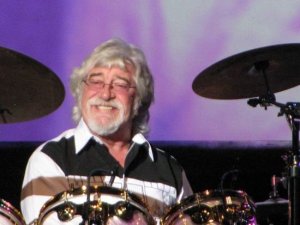
 Drummer Charlie Watts, who has died at 80, provided the foundation which underpinned the music of the Rolling Stones for 58 years.
Drummer Charlie Watts, who has died at 80, provided the foundation which underpinned the music of the Rolling Stones for 58 years.









 Peter ‘Ginger’ Baker – Cream/Blind Faith – was born on 19 August 1939 in Lewisham, South London. His mother, Ruby May worked in a tobacco shop. His father, Frederick Louvain Formidable Baker, was a bricklayer employed by his own father, who owned a construction business and was a lance corporal in the Royal Corps of Signals in World War II; he died in the 1943 Dodecanese campaign. Baker went to Pope Street School, where he was considered “one of the better players” in the football team, and then to Shooter’s Hill Grammar School. Here he was nicknamed “Ginger” for his shock of flaming red hair.
Peter ‘Ginger’ Baker – Cream/Blind Faith – was born on 19 August 1939 in Lewisham, South London. His mother, Ruby May worked in a tobacco shop. His father, Frederick Louvain Formidable Baker, was a bricklayer employed by his own father, who owned a construction business and was a lance corporal in the Royal Corps of Signals in World War II; he died in the 1943 Dodecanese campaign. Baker went to Pope Street School, where he was considered “one of the better players” in the football team, and then to Shooter’s Hill Grammar School. Here he was nicknamed “Ginger” for his shock of flaming red hair.
 July 22, 2019 – Art Neville was born on 17 December 1937 the oldest son in the famous New Orleans blues/funk family that created the Neville Bothers. Art was born in New Orleans to Arthur Neville and his wife, Amelia (nee Landry). His father was a station porter fond of singing tunes by Nat King Cole and the Texan bluesman Charles Brown. His mother was part of a dance act with her brother, George “Big Chief Jolly” Landry.
July 22, 2019 – Art Neville was born on 17 December 1937 the oldest son in the famous New Orleans blues/funk family that created the Neville Bothers. Art was born in New Orleans to Arthur Neville and his wife, Amelia (nee Landry). His father was a station porter fond of singing tunes by Nat King Cole and the Texan bluesman Charles Brown. His mother was part of a dance act with her brother, George “Big Chief Jolly” Landry.


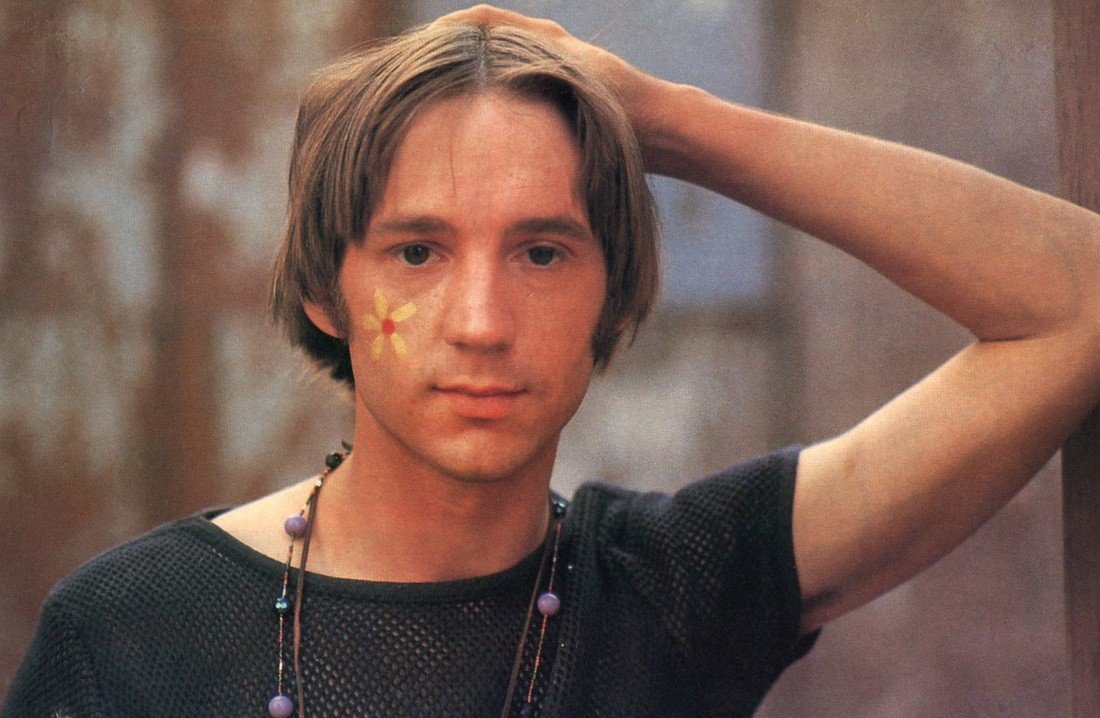
 Peter Tork (The Monkees) was born Peter Halsten Thorkelson on February 13, 1942 in Washington DC. His father John taught economics at the University of Connecticut. He began studying piano at the age of nine, showing an aptitude for music by learning to play several different instruments, including the banjo, French horn and both acoustic bass and guitars. Tork attended Windham High School in Willimantic, Connecticut, and was a member of the first graduating class at E. O. Smith High School in Storrs, Connecticut. He attended Carleton College in Minnesota but, after flunking out, moved to New York City, where he became part of the folk music scene in Greenwich Village and with his guitar and five-string banjo he began playing small folk clubs. He billed himself as Tork, a nickname handed down by his father, and reportedly played with members of the soon-to-be formed band Lovin’ Spoonful (Summer in the City). While there, he befriended other up-and-coming musicians such as Stephen Stills (Crosby, Stills Nash and Young).When Tork “failed to break open the folk circuit,” as he later phrased it, he moved to Long Beach, California in mid-1965. Later that summer, he fielded two calls from his friend Stephen Stills (Crosby, Stills, Nash and Young), who had auditioned with more than 400 others for the Monkees. Stills urged Tork to try out. “They told Steve, ‘Your hair and teeth aren’t photogenic, but do you know anyone who looks like you that can sing?’ And Steve told them about me,” Tork told the Washington Post in 1983.
Peter Tork (The Monkees) was born Peter Halsten Thorkelson on February 13, 1942 in Washington DC. His father John taught economics at the University of Connecticut. He began studying piano at the age of nine, showing an aptitude for music by learning to play several different instruments, including the banjo, French horn and both acoustic bass and guitars. Tork attended Windham High School in Willimantic, Connecticut, and was a member of the first graduating class at E. O. Smith High School in Storrs, Connecticut. He attended Carleton College in Minnesota but, after flunking out, moved to New York City, where he became part of the folk music scene in Greenwich Village and with his guitar and five-string banjo he began playing small folk clubs. He billed himself as Tork, a nickname handed down by his father, and reportedly played with members of the soon-to-be formed band Lovin’ Spoonful (Summer in the City). While there, he befriended other up-and-coming musicians such as Stephen Stills (Crosby, Stills Nash and Young).When Tork “failed to break open the folk circuit,” as he later phrased it, he moved to Long Beach, California in mid-1965. Later that summer, he fielded two calls from his friend Stephen Stills (Crosby, Stills, Nash and Young), who had auditioned with more than 400 others for the Monkees. Stills urged Tork to try out. “They told Steve, ‘Your hair and teeth aren’t photogenic, but do you know anyone who looks like you that can sing?’ And Steve told them about me,” Tork told the Washington Post in 1983. Maarten Allcock (61) – multi instrumentalist with Fairport Convention and Jethro Tull,
Maarten Allcock (61) – multi instrumentalist with Fairport Convention and Jethro Tull, 
















 November 7, 2017 – Paul Buckmaster born on June 13, 1946 in London England.
November 7, 2017 – Paul Buckmaster born on June 13, 1946 in London England.
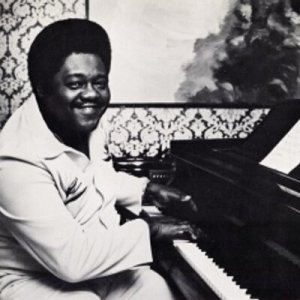 October 24, 20017 – Antoine Dominique Fats Domino was born on February 26, 1928 in New Orleans, Louisiana, the youngest of eight in a Louisiana Creole family. At age 9, he started to learn piano, taught by his brother-in-law, jazz guitarist Harrison Verrett. By age 14, Domino was performing in New Orleans bars.
October 24, 20017 – Antoine Dominique Fats Domino was born on February 26, 1928 in New Orleans, Louisiana, the youngest of eight in a Louisiana Creole family. At age 9, he started to learn piano, taught by his brother-in-law, jazz guitarist Harrison Verrett. By age 14, Domino was performing in New Orleans bars.






 September 5, 2017 – Holger Czukay was born on March 24, 1938 in the Free City of Danzig (since 1945 Gdańsk, Poland), from which his family was expelled after World War II. Due to the turmoil of the war, Czukay’s primary education was limited. One pivotal early experience, however, was working, when still a teenager, at a radio repair-shop, where he became fond of the aural qualities of radio broadcasts (anticipating his use of shortwave radio broadcasts as musical elements) and became familiar with the rudiments of electrical repair and engineering.
September 5, 2017 – Holger Czukay was born on March 24, 1938 in the Free City of Danzig (since 1945 Gdańsk, Poland), from which his family was expelled after World War II. Due to the turmoil of the war, Czukay’s primary education was limited. One pivotal early experience, however, was working, when still a teenager, at a radio repair-shop, where he became fond of the aural qualities of radio broadcasts (anticipating his use of shortwave radio broadcasts as musical elements) and became familiar with the rudiments of electrical repair and engineering.



 July 6, 2017 – Melvyn “Deacon” Jones was born December 12, 1943 in Richmond Indiana. By the time he was a teenager, Deacon was proficient on trumpet and performed with his brother Harold in the high school band. Harold Jones later became a famed jazz drummer.
July 6, 2017 – Melvyn “Deacon” Jones was born December 12, 1943 in Richmond Indiana. By the time he was a teenager, Deacon was proficient on trumpet and performed with his brother Harold in the high school band. Harold Jones later became a famed jazz drummer.
 July 4, 2017 – John Blackwell was born on September 9, 1973 and raised in Columbia, South Carolina, and started playing drums at age 3. He learned from his father, John Blackwell Sr., a drummer himself, who played with Mary Wells, King Curtis, Joe Simon, J.J. Jackson, The Drifters, The Spinners, and others. Blackwell stated that he experienced synesthesia since he was a child, seeing colors for musical notes, and was identified as having perfect pitch while in high school.
July 4, 2017 – John Blackwell was born on September 9, 1973 and raised in Columbia, South Carolina, and started playing drums at age 3. He learned from his father, John Blackwell Sr., a drummer himself, who played with Mary Wells, King Curtis, Joe Simon, J.J. Jackson, The Drifters, The Spinners, and others. Blackwell stated that he experienced synesthesia since he was a child, seeing colors for musical notes, and was identified as having perfect pitch while in high school.






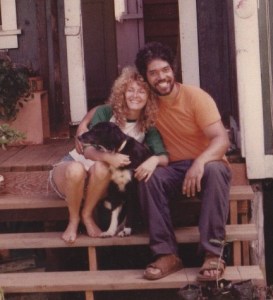




 April 8, 2017 – Keni Richards was born in 1956 in Des Moines, Iowa but spent his high school years Village Park California. As a youth he learned to play the piano and picked up the drums.
April 8, 2017 – Keni Richards was born in 1956 in Des Moines, Iowa but spent his high school years Village Park California. As a youth he learned to play the piano and picked up the drums.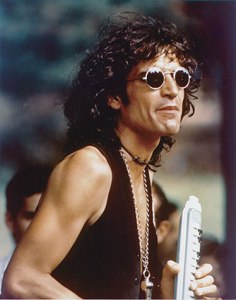





 February 18, 2017 – Clyde Stubblefield (drummer for James Brown) was born on April 18, 1943 and grew up in Chattanooga, Tennessee. Rhythm was in his soul. He was a natural who took his sense of rhythms from the streets, the neighborhoods, the factories and the railroad tracks. He later said that if he could hear a rhythm in his head, he could play it.
February 18, 2017 – Clyde Stubblefield (drummer for James Brown) was born on April 18, 1943 and grew up in Chattanooga, Tennessee. Rhythm was in his soul. He was a natural who took his sense of rhythms from the streets, the neighborhoods, the factories and the railroad tracks. He later said that if he could hear a rhythm in his head, he could play it.
 February 4, 2017 – Steve Lang, (April Wine) was born Stephen Keith Lang in Montreal, Quebec on March 24, 1949. The band that gave him fame as a musician, was formed in late 1969 in Halifax, Nova Scotia. The original members, the three brothers Henman with friend vocalist/guitarist Myles Goodwyn soon moved the band to Montreal to gain more exposure. They scored their first hit with “Fast Train” followed by a self-titled debut album.
February 4, 2017 – Steve Lang, (April Wine) was born Stephen Keith Lang in Montreal, Quebec on March 24, 1949. The band that gave him fame as a musician, was formed in late 1969 in Halifax, Nova Scotia. The original members, the three brothers Henman with friend vocalist/guitarist Myles Goodwyn soon moved the band to Montreal to gain more exposure. They scored their first hit with “Fast Train” followed by a self-titled debut album. 



 January 23, 2017 – Marvell Thomas was born in Memphis Tennessee on August 22, 1941. The Thomas family is rooted in music and especially Memphis Soul. Legendary rock and roll pioneer Rufus (Walking the Dog) was his dad. His sisters Carla and Vaneese were much noted, especially Carla (the Queen of Memphis Soul) reached superstardom.
January 23, 2017 – Marvell Thomas was born in Memphis Tennessee on August 22, 1941. The Thomas family is rooted in music and especially Memphis Soul. Legendary rock and roll pioneer Rufus (Walking the Dog) was his dad. His sisters Carla and Vaneese were much noted, especially Carla (the Queen of Memphis Soul) reached superstardom.






You must be logged in to post a comment.